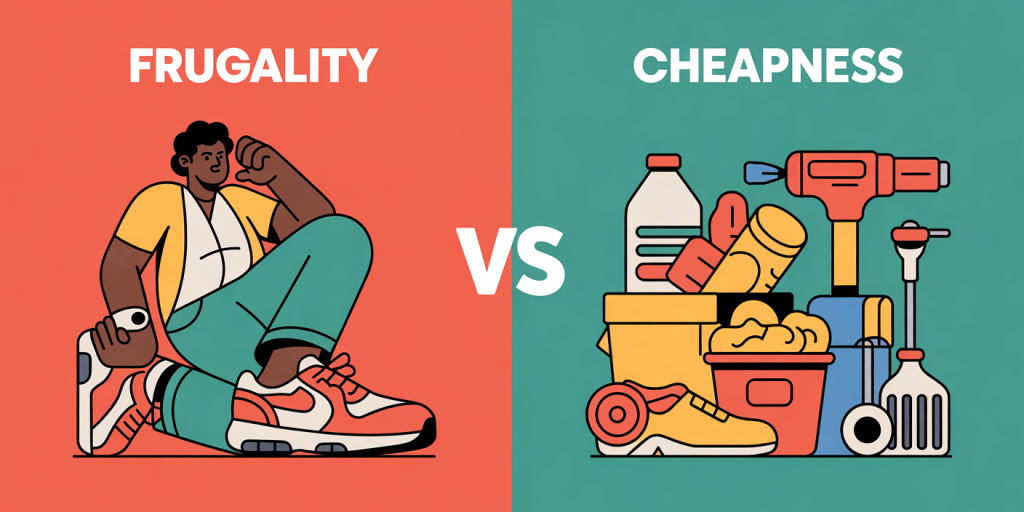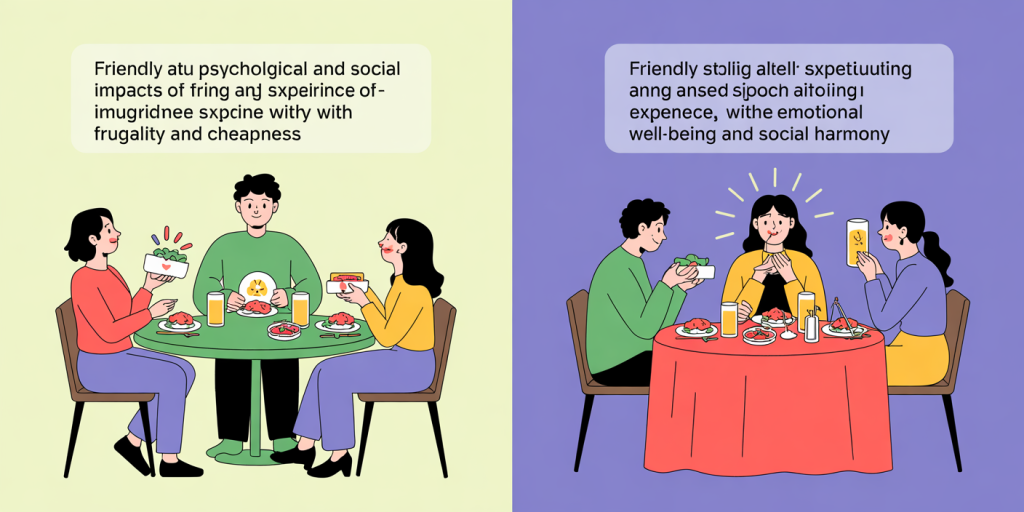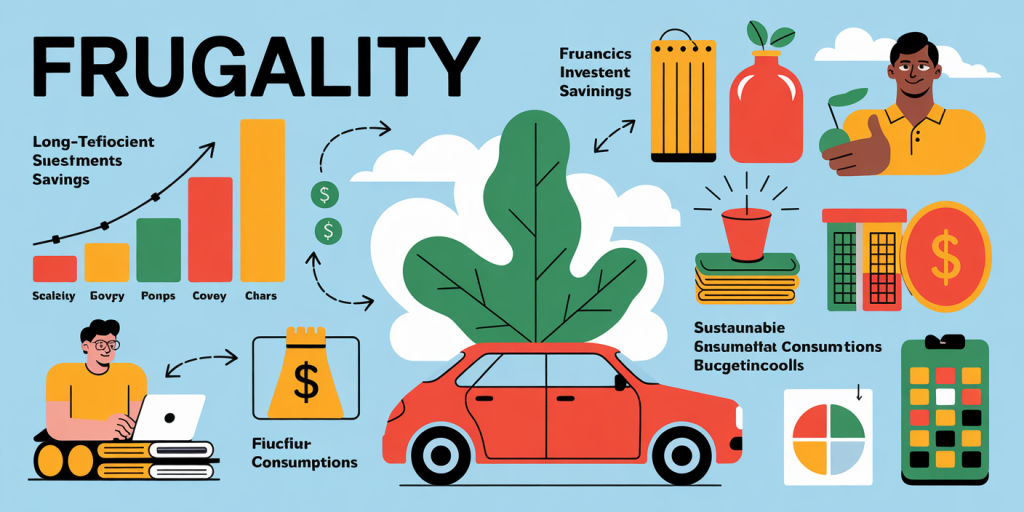In today’s consumer-driven society, managing finances wisely is a vital skill. Many people strive to save money, but there’s often confusion around two seemingly similar concepts: being frugal and being cheap. While both involve spending less money, they are fundamentally different attitudes and behaviors with distinct impacts on personal finances, relationships, and overall quality of life. Understanding these differences is crucial to cultivating a healthy money mindset that maximizes savings without sacrificing value or well-being.
The importance of distinguishing frugality from cheapness transcends simple budgeting. It influences consumer habits, decision-making processes, and social perceptions. This article explores the nuanced contrasts between being frugal and being cheap, supported by practical examples, real-life cases, data, and comparative tables to highlight why this distinction matters. Recognizing these differences can empower more intentional spending decisions and foster a balanced approach to financial management.
Defining Frugality and Cheapness: A Closer Look

At the heart of the discussion is the distinction between frugality and cheapness. Frugality is the intentional and mindful management of resources to maximize value and utility. A frugal person consciously seeks high-quality purchases or experiences at the best possible price. For example, buying durable shoes that last several years or investing in energy-efficient appliances to reduce monthly bills and environmental impact illustrates frugality in action. It is a strategic and thoughtful approach to budgeting that prioritizes long-term benefits over immediate savings.
In contrast, cheapness is often characterized by a focus on the lowest cost at the expense of quality, ethics, or social relationships. A cheap person tends to avoid spending money altogether, even when it would enhance value or well-being. For example, refusing to replace worn-out shoes and enduring discomfort, or skimping on maintenance that ultimately leads to higher repair costs, embodies cheap behavior. Cheapness can result in negative social perceptions, damaged relationships, and higher expenses in the long run.
To quantify, a 2021 survey by Bankrate found that 73% of Americans want to be more frugal in their spending, but only 43% associate “being cheap” with positive attributes like financial wisdom. This highlights a common stigma around cheapness that influences spending behavior and self-perception.
Psychological and Social Implications of Frugality vs. Cheapness
Beyond mere financial considerations, frugality and cheapness carry distinct psychological and social effects. Frugality often enhances financial well-being, promoting self-discipline and reducing stress related to money management. Research by the American Psychological Association indicates that individuals who practice frugality report higher life satisfaction and lower financial anxiety. This is because frugal habits often align spending with personal values, such as sustainability, health, or education.

Conversely, cheapness can foster social friction and isolation. People labeled as cheap may be perceived as selfish, untrustworthy, or stingy. This social stigma can hinder friendships and professional relationships. For instance, a person who repeatedly refuses to contribute to group activities citing “saving money” may be excluded or lose social capital. Cheap behavior can also reduce feelings of personal fulfillment, as the quality and enjoyment of many experiences are compromised.
Consider the example of dining out. A frugal individual might choose restaurants that offer good value, occasionally splurging for quality meals with friends, whereas a cheap individual might insist on only home-prepared meals and avoid social dining altogether. These choices reflect different priorities and have contrasting social consequences.
Practical Examples: How Frugality and Cheapness Play Out in Everyday Life
Understanding these concepts is easier when illustrated with practical examples from daily life. Let’s explore differences in grocery shopping, travel, and home maintenance. Grocery Shopping: A frugal shopper uses coupons, buys seasonal produce, and plans meals to reduce waste and cost. They buy higher-quality items on sale or in bulk for long-term savings. In contrast, a cheap shopper always buys the cheapest brand regardless of quality or nutritional value, often leading to unused or spoiled food, and potentially higher medical costs due to poor diet. Travel: Frugal travelers seek discounted flights, use loyalty programs, and choose accommodations that balance comfort and affordability. They invest in experiences that create lasting memories without unnecessary spending. Cheap travelers might consistently pick the lowest-cost options with little regard for safety, cleanliness, or enjoyment, sacrificing comfort and well-being. Home Maintenance: Frugality involves regular upkeep to prevent costly repairs, selecting trustworthy contractors, and investing in energy-efficient upgrades. Cheapness might mean ignoring small repairs, attempting DIY fixes beyond capability, or hiring the very cheapest service providers whose work results in more damage.

A real-world case study is highlighted by CNBC, which reports that homeowners who delay minor repairs incur 21% higher costs in eventual replacements (CNBC, 2022). This shows that frugality in maintenance is economically wise compared to cheapness, which disguises greater expenses.
| Aspect | Frugal Behavior | Cheap Behavior |
|---|---|---|
| Purchase Quality | Prioritizes durability and function | Chooses lowest cost regardless of quality |
| Spending Motive | Maximizes value and aligns with goals | Avoids spending even if it causes discomfort |
| Social Impact | Often respected for wise decisions | May be seen as selfish or stingy |
| Long-term Cost | Reduces expenses through strategic investment | Potentially incurs higher costs due to neglect |
| Emotional Effect | Leads to satisfaction and reduced money stress | Causes regret, frustration, or social tension |
Financial Impact: Why Frugality Outperforms Cheapness Economically
Frugality is not merely a character trait but a financially sound strategy with proven benefits. According to the U.S. Bureau of Labor Statistics, households that classify themselves as frugal typically save 10% to 15% more of their income compared to those who try to minimize expenses without strategic planning. Frugality’s emphasis on value and long-term savings maximizes financial health.
For example, choosing a moderately priced, fuel-efficient car over a cheap, unreliable vehicle reduces maintenance costs and improves resale value. The initial investment may be higher, but the overall cost of ownership is lower, contributing to net savings.
Moreover, frugal practices—such as investing in preventive healthcare, bulk purchasing, and avoiding impulse buying—can collectively save thousands annually. According to a 2023 survey by NerdWallet, frugal families saved on average $7,500 per year on discretionary spending by employing strategic budgeting and value-oriented purchasing.
Cheapness, on the other hand, often results in hidden costs. Opting for the cheapest products can lead to frequent replacements, repairs, and lost productivity. Additionally, poor spending decisions can generate financial strain when immediate savings cause future liabilities.
Building Healthy Money Habits: Incorporating Frugality for Lasting Benefits
Adopting a frugal mindset requires intentional habit-building and re-framing the way one views money. Practical steps include setting financial goals, tracking expenses, researching purchases, and embracing mindful consumption.
For instance, educational platforms like Dave Ramsey emphasize “spending on what matters and cutting unnecessary costs.” Prioritizing experiences over things, focusing on quality rather than quantity, and planning purchases during sales are hallmarks of frugality adopted by millions seeking financial freedom.
Conversely, overcoming tendencies toward cheapness involves understanding the real cost of penny-pinching and its social consequences. Evaluating purchases not solely on price but on overall value—considering durability, enjoyment, and social goodwill—helps transform cheap instincts into frugal wisdom.
Personal finance coaches frequently recommend combining frugality with generosity. Simple acts like sharing resources, gifting meaningful but cost-effective presents, or contributing fairly to social events can strengthen relationships while supporting sensible budgeting.
Future Perspectives: The Evolving Role of Frugality in a Changing World
Looking ahead, frugality appears poised to become an increasingly important lifestyle and economic principle. The growth of the sustainable consumption movement, reported by NielsenIQ in 2024, shows that 70% of global consumers want to buy products from brands committed to environmental and social responsibility. Frugality’s alignment with minimal waste, durability, and thoughtful consumption fits neatly with these evolving values.
Technological advances also contribute to smarter frugality. Tools such as budgeting apps, cashback platforms, and personalized deal alerts empower consumers to make better decisions and optimize spending with minimal effort. Frugality will likely integrate more seamlessly with everyday life, supporting both personal finances and broader economic sustainability.
Meanwhile, the cultural perception of cheapness may soften with greater awareness of economic diversity and varying financial challenges. However, the social and psychological downsides of extreme cost-cutting behaviors emphasize the enduring importance of distinguishing between frugal and cheap.
In conclusion, while the temptation to save money is universal, the ways in which people save can lead to significantly different outcomes. Frugality embodies a balanced, value-driven approach to spending that promotes financial health, emotional well-being, and social harmony. Cheapness, by contrast, often sacrifices quality, relationships, and long-term savings in pursuit of immediate cost avoidance. Learning to adopt frugal habits without falling into cheapness is key to achieving sustainable financial success and a fulfilling lifestyle.

Deixe um comentário